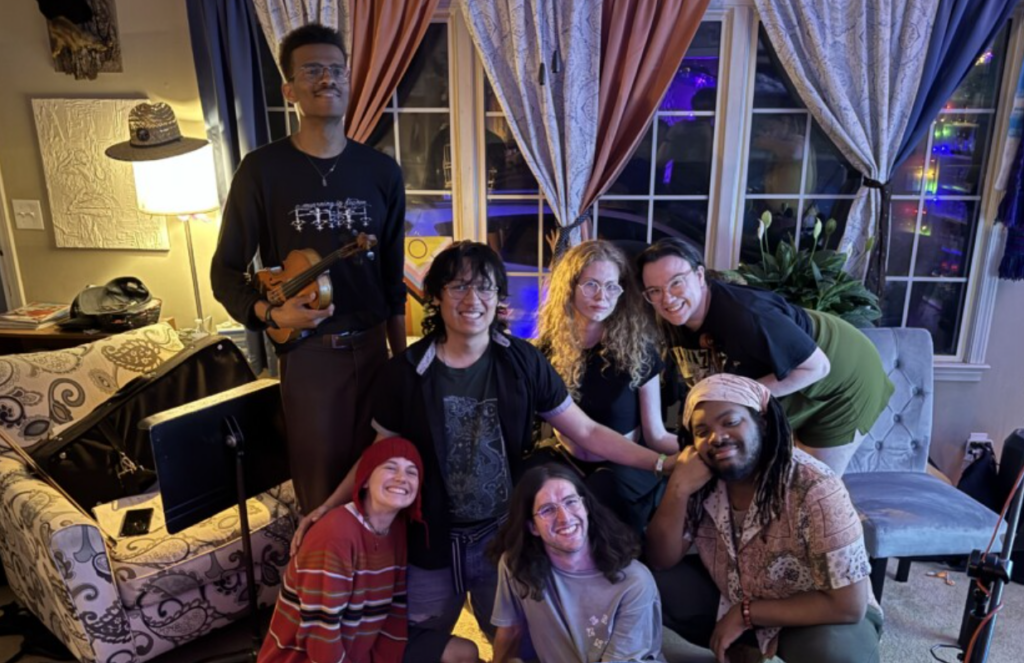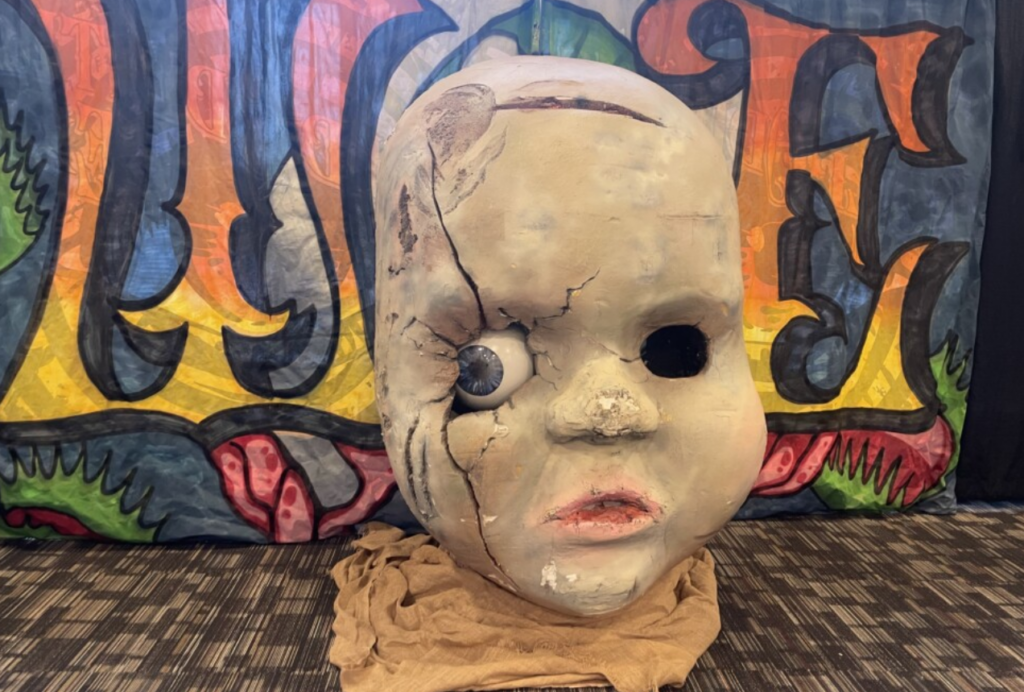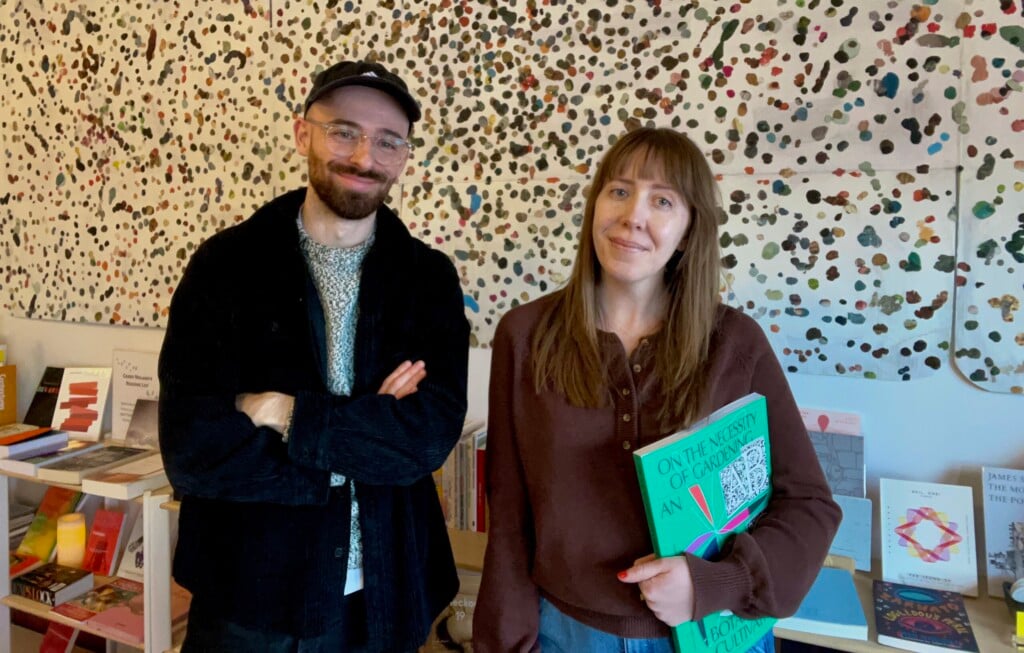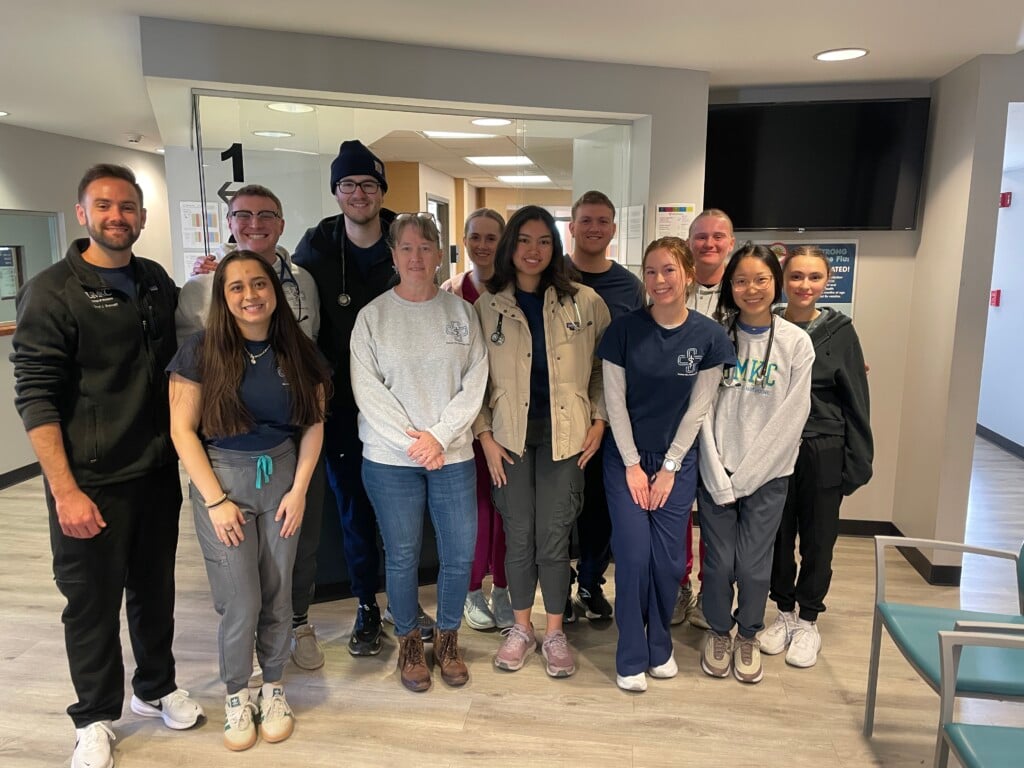Former White House Aide Alejandra Campoverdi visits UMKC on book tour

Author Alejandra Campoverdi speaks with two UMKC staff members at her book signing. // Courtesy First Gen Roo at UMKC
The University of Missouri-Kansas City launched its First Gen Roo Program in the fall of 2019. First Gen Roo (FGR) is designed to support first-generation college students, and—surprise!—I fall into that category. FGR’s first semester on campus just so happened to be mine, too.
After participating in the program during my first year, I spent the next three working as a peer mentor and a student support specialist in their offices. Like most students, I have my share of complaints about UMKC, but my involvement with the first-gen program was one of the major highlights of my time on campus.
In 2020, UMKC was designated as a First-Gen Forward Institution by the Center for First-Generation Student Success. Since then, FGR has worked harder than ever to create a welcoming space for first-generation students, from lunchtime “Pizza with a Professor” sessions to the Tri Alpha honors society. A staggering 54.3% of first-time UMKC students are first-gen, and 49.4% of all UMKC undergrads are first-gen. It’s in the university’s best interests to ensure that this population thrives.

Author Alejandra Campoverdi and Dr. Toya Like discuss Campoverdi’s memoir at UMKC’s Student Union. // Photo by Lauren Textor
That’s where Alejandra Campoverdi comes in. Her impressive resume includes the title of first White House Deputy Director of Hispanic Media and producer for the PBS documentary Inheritance. She, too, got her start as a first-gen student.
On Nov. 9, Campoverdi wrapped up her book tour for First Gen: A Memoir, which included a stop at UMKC’s Student Union on Oct. 24. The book follows Campoverdi from her California upbringing on welfare to her run for Congress—and, most importantly, through the spaces in between.
Before and after her on-stage appearance, Campoverdi spoke with students and signed copies of her book.
Early on in her memoir, Campoverdi outlines the themes that she’s recognized in the lives of “First and Onlys” like herself. She terms these issues “Invisible Inheritances,” “Parentified Child,” “Bicultural Balancing Act,” “Chutes and Social Ladders,” “Lonely Hustle,” “Blindfolded Cliff Jumping,” “Imposter Syndrome Plus,” and “Breakaway Guilt.”
If you’re a first-gen student, then at least one of these ideas will likely jump out at you. For fourth-year pre-dental hygiene student Jazmin Barahona, it’s the breakaway guilt: a feeling of responsibility for proving that family sacrifices were worthwhile and self-consciousness in obtaining financial security.
“I’ve always heard, ‘Oh, your mom came to this country for you to do this, this, and that—to have a better life,’” she says. “College isn’t easy. You’ll always question yourself. ‘Am I making my family proud? Am I doing everything right?’ Growing up, I had some family members who looked at me like, ‘Oh, she’s she thinks she’s all that because she goes to college.’”

Author Alejandra Campoverdi hugs a fan at her book signing at UMKC on Oct. 24. // Courtesy First Gen Roo at UMKC
Karla Arias-Cassiano is a second year who works as a student support specialist on campus. Like Campoverdi, she was raised in a single-parent household. She’s found her niche at UMKC, but she wasn’t always sure that she would fit into campus life.
“In high school, I graduated when I was going through medical treatment with a 2.5 GPA, thinking that there was a very low chance for me to go to college and be in programs like these,” Arias-Cassiano says. “Whoever read my personal statement, they saw me. They didn’t just see my scores—they saw me. I know that I worked hard to be where I am today, but in the summer, when I went to our first meeting for Professional Career Escalators, I remember having this anxiety of feeling like I didn’t belong compared to everyone else. I felt like maybe, one day, people would see right through me.”
Both in her book and in her on-stage discussions, Campoverdi devotes a large chunk of time to untangling family dynamics.
“You know, I was talking to somebody earlier about what it’s like to go home,” she says. “People are like, ‘Oh, you changed. What, do you think you’re too good?’ ‘You’ve changed’ is something lobbed at us very regularly, which is crazy because aren’t we all supposed to evolve and change?”
Campoverdi’s mother appears frequently in the memoir, and the mother-daughter relationship has continued to shift since the book’s publication. Campoverdi’s family doesn’t always understand her career or her motivations, despite their pride in her.
“At a certain point, I stopped needing the validation of my family to understand that what I was doing was worthwhile. It’s nice when it comes, and I do appreciate it, and makes me tear up every time it comes,” she says. “I’m not a robot or a perfectly healed person. It’s more about being intentional and making a choice that validation doesn’t need to come from your family. It just needs to come from yourself.”

First-generation student Kyra Afolabi asks author Alejandra Campoverdi a question about her book, First Gen: A Memoir. // Courtesy First Gen Roo at UMKC
When the floor is opened for questions, a student asks about how Campoverdi manages to maintain her cultural identity while working in predominantly white spaces.
“Don’t define your identity based on the space you’re in,” Campoverdi says. “That’s a conversation you have with yourself about who you are and who you want to be like. What’s important to you? What is the skin you feel the best in? That doesn’t change. That’s the same no matter where you are—no matter how you’re celebrated or not celebrated, whether you’re included or not included. A big arc in the book is centered around self-abandonment and all the ways that I abandoned myself throughout my life for belonging, for love, for acceptance… for everything, right? It is a papercut of self-abandonment to shift your identity based on where you are.”
Campoverdi is using her resources to back first-generation students with financial support. On Nov. 8, National First-Generation College Celebration Day, she announced the recipients of her First Gen Fellowship. Unrestricted grants of $1,000 each were awarded to 10 first-generation students.
UMKC’s First Gen Roo Program continues to host a dizzying calendar of events, from first-gen mixers to self-care breaks and career planning sessions. Campoverdi’s book talk kicked off UMKC’s First Gen Celebration, which consisted of 14 events— including an opportunity to eat lunch with the Kansas City Chiefs. Student attendance leaped from 295 in 2022 to 828 total students in 2023.
As I’m now a UMKC alum, it’s only a matter of time before my phone starts ringing with asks for donations to the university. If I had the savings, I’d seriously consider an earmarked donation to First Gen Roo this holiday season.




